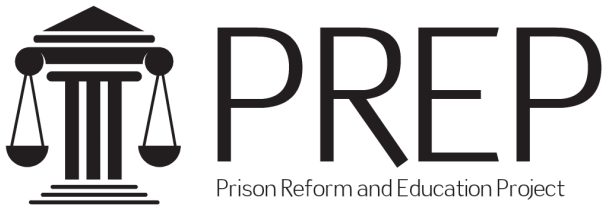Our Mission
To humanize the American experience of incarceration and reentry.
To put an end to the Prison Industrial Complex (PIC) that has dramatically increased the number of U.S. prisoners, broken families, and shattered communities; and which has limited historically marginalized peoples’ access to adequate housing and education, cost taxpayers millions, and simultaneously failed to keep us safe. To do this, we seek to stop the expansion of correctional facilities by forcing empirical discussion about America’s broken system and advocating for the improvement of conditions in already existing prisons.
To put an end to the Prison Industrial Complex (PIC) that has dramatically increased the number of U.S. prisoners, broken families, and shattered communities; and which has limited historically marginalized peoples’ access to adequate housing and education, cost taxpayers millions, and simultaneously failed to keep us safe. To do this, we seek to stop the expansion of correctional facilities by forcing empirical discussion about America’s broken system and advocating for the improvement of conditions in already existing prisons.
Our History
The Prison Reform and Education Project (PREP) was founded in November of 2013 as the Redemption Project. We began by lobbying for solitary confinement reform in New York State. Redemption Project members contacted members of the NY state legislature to lobby for the passage of the HALT Solitary Confinement Act, which creates rehabilitative alternatives to solitary confinement and limits the length of time inmates can be placed in solitary confinement.
During the Spring 2014 semester, our scope expanded to raising awareness and engaging the student body through a public film screening and quarter-carding campaigns. Over the Summer of 2014, we changed our name to the Prison Reform and Education Project (PREP) to further broaden our scope and reflect our expanded research and education role. Over the Spring of 2019, we transitioned to a general body and project-team structure in order to complement our increasingly ambitious goals.
During the 2015-2016 academic year, PREP organized and led a campaign to Ban the Box at Cornell University. The campaign led to Cornell's commitment to remove the conviction question from its job applications by July 1st, 2016.
During the 2018-2019 academic year, PREP worked with Cornell University Admissions to substantiate admissions policy and to create an admissions webpage dedicated to adjudicated applicants: visit here or email us directly with any questions about applying or being a student at Cornell.
During the Spring 2014 semester, our scope expanded to raising awareness and engaging the student body through a public film screening and quarter-carding campaigns. Over the Summer of 2014, we changed our name to the Prison Reform and Education Project (PREP) to further broaden our scope and reflect our expanded research and education role. Over the Spring of 2019, we transitioned to a general body and project-team structure in order to complement our increasingly ambitious goals.
During the 2015-2016 academic year, PREP organized and led a campaign to Ban the Box at Cornell University. The campaign led to Cornell's commitment to remove the conviction question from its job applications by July 1st, 2016.
During the 2018-2019 academic year, PREP worked with Cornell University Admissions to substantiate admissions policy and to create an admissions webpage dedicated to adjudicated applicants: visit here or email us directly with any questions about applying or being a student at Cornell.
What We Do
PREP is organized around two pillars: education and advocacy. We strive to raise awareness on campus about issues relating to mass incarceration and criminal justice through weekly reading and video discussions, public speaking events, and educational campaigns. We also lead and support direct actions around prison reform efforts in the immediate community and in the New York State legislature. PREP provides tutors for The College Initiative Upstate, which seeks to minimize the boundaries between incarceration, reentry, and higher education.

